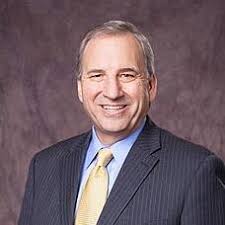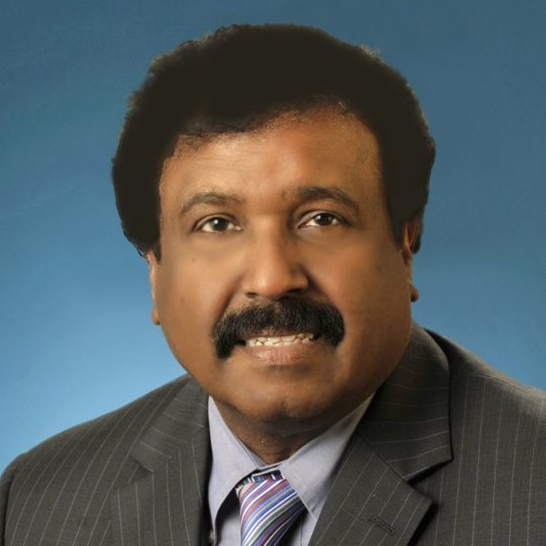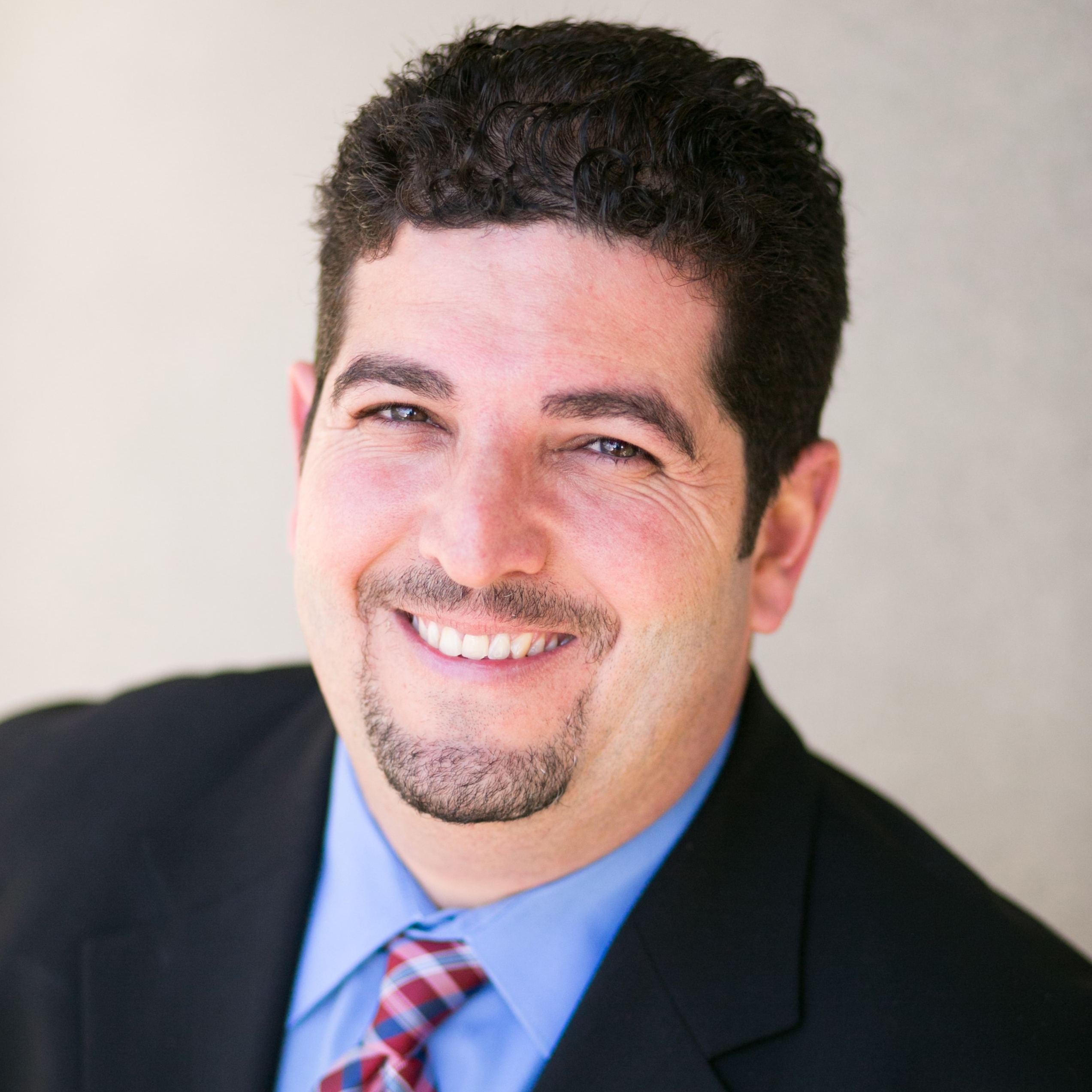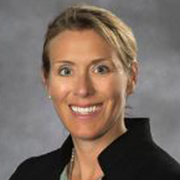COVID-19 poses huge challenges but also presents opportunities
When you consider the far-reaching impact of the COVID-19 pandemic on the nation’s healthcare system, two things appear to be true for all U.S. healthcare organizations: Each organization’s experience of the pandemic is unique, and no organization has emerged from it unscathed.
Although these two main themes emerged in recent conversations hfm had with healthcare finance leaders from across the nation, workforce impact and organizational psyche tended to be foremost in finance leaders’ minds. Although they acknowledged the challenges posed by COVID-19, leaders also underscored the ways their organizations have been strengthened as a result of the pandemic.
Impact of COVID-19 on the workforce
Addressing workforce issues in response to the pandemic was a priority from the start for VCU Health System in Richmond, Virginia.
“When I look back to February and March, I can’t tell you that we all got in a room and said, ‘This is what we want to look like through this,’” said Melinda S. Hancock, FHFMA, CPA, chief administrative and financial officer for VCU Health System, and the 2015-16 HFMA chair. “The decisions we made then were just so fundamental to who and what we are. One, we are a state authority, and two, as part of our health system, we have an urban academic medical center, safety net organization — the largest in Virginia.

“And recognizing the percentage to total of our mix compared with the other health systems in Virginia, that is, our Medicaid and self-pay, we started pulling back on non-urgent care to free up capacity and to conserve PPE before the governor required the state to do so.”
Fortunately for VCU Health System’s workforce, this move didn’t lead to layoffs or furloughs.
“We immediately declared every employee in VCU Health System as being essential, because we also didn’t know if we might not need everybody,” Hancock said.
So in addition to creating a command center, the health system also created a staffing center, with team members reviewing the health systems’ workforce to determine which employees had no assignment and redeploying them after ensuring they received appropriate training.
“For example, when we stopped doing valet services for safety concerns, we redeployed some valet staff members to our decks to help with way-finding to ensure that patients got in safely,” Hancock said. “We also redeployed people to the front lines to help with screening, and to the floors, to provide additional hands, since COVID-19 patients are very resource intensive.”
VCU Health System also found other ways to redeploy staff. Following the example of other states, Hancock said, the health system converted a dorm on its campus, which previously was a hospital, into a surge capacity center.
“We converted it in two weeks back to a hospital, and we got temporary licensure for that hospital,” Hancock said. “And today it stands fully equipped and ready to go at a moment’s notice. That’s another reason we didn’t furlough and lay off anybody, because we were going to need to staff that hospital’s nearly 180 licensed beds. The licensure has now been extended through the pandemic, not knowing what a future surge would look like.”
VCU Health System also made a commitment to childcare for its employees.
“We partnered with the area agencies, the local YMCA and others to open up additional childcare centers to help our employees,” Hancock said. “Then, when the Families First Coronavirus Response Act was passed, VCU Health System opted into it. Prior to that, we had covered one week of quarantine, and now, under the legislation, we cover both weeks of any required quarantine for a staff member.”
All that is not to say VCU Health System didn’t make difficult decisions, or that it did not experience a negative impact from COVID-19. Hancock noted that, as of early June, the health system overall had lost $150 million in net revenue.
“Just like everybody, we’ve reviewed every project, and we’ve had to curtail things,” Hancock said. “But we’ve also been very honest with our employees. The only reason we could do what we’ve done is that the employees helped us get in a really good financial position before the pandemic, which is now carrying us through the crisis. So we are giving back to them.”
VCU Health System’s actions and unique circumstances enabled it to quickly project a positive financial outlook. “Because we have been able to reactivate quickly, with a return to non-urgent procedures, we have a chance to end our fiscal year in June with a positive bottom line. As of May, many of our services were scheduling close to, and even above, 100% pre-COVID-19 volumes. And I think a key factor was that we didn’t lay off anyone.”
But she also acknowledged that the prospect of a positive bottom line may be out of reach for many other hospitals and health systems.
“I am not recommending to anybody that they should have followed our example,” Hancock said. “I want to be super clear about that. You cannot compare one health system to another.”
Each hospital and each health system has to make its own decisions according to the demands of its situation and its market, Hancock said.
“And we’re in totally different markets.”
Hancock pointed out, for instance, that VCU Health System is an urban academic medical center with other community hospital sites, with a payer and patient mix that differs from that of other health systems. She also noted that the acuity of patient conditions at VCU Health System has gone up during this time.
“Part of what I learned as chair of HFMA is that healthcare is indeed local, and you cannot compare it. So don’t judge.”
Laying a groundwork to weather a crisis
Intermountain Health in Salt Lake City has been able to weather the COVID-19 crisis because of its efforts prior to the pandemic, and the commitment of its workforce, said Kerry Gillespie, CPA, the health system’s CFO for specialty-based care. And as with VCU Health System, redeployment was a centerpiece of Intermountain’s response.

Gillespie attributed Intermountain’s early success to the fiscal strategy the health system had in place prior to the pandemic: “Intermountain has been very judicious with managing its finances,” he said.
Gillespie underscored the value of having the assets in place and the ability to provide a shield for Intermountain’s caregivers against layoffs.
“We’ve been able to weather the first months of this storm, quite well. The financial stability that we’ve been blessed with over the years is a result of very rigorous financial management that has allowed us to prepare for these times when things don’t go well.”
The situation was not easy, however.
“When we went to our caregivers with a plan to try to keep their paychecks intact, our whole operating model was being disrupted,” Gillespie said. “We developed a plan to move people around and do things in a different and more creative way. The buy-in that we got from our caregivers and leaders throughout the organization was impressive: Nearly everyone bought into the proposal and jumped in with both feet.”
As Intermountain has moved to a different phase, Gillespie has seen caregiver engagement increase substantially from what it was before the process began.
“It’s mutually beneficial. Leadership takes care of the long-term stability of the company so our caregivers who provide the care for patients in our communities are protected,” Gillespie said. “And these caregivers are really on the front lines. They’ve been very disrupted. Their families have been disrupted. Yet all of our caregivers have stepped up and said: ‘I will come to work. I will put my personal health at risk to take care of the people who need that care. And if I’m working in surgery and I don’t have anything to do, I will work in another part of the organization to provide a support for drive-thru test collection stations, COVID-19 hotlines and other areas that need additional support.’”
Intermountain has redeployed thousands of caregivers this way at any one time, Gillespie said. “And they are doing different things to support our organization because they’re not necessarily needed in the job they were hired for. It’s good for Intermountain, and it’s good for the communities we serve.”
Keep an eye on communication and the fundamentals
For Martin D’Cruz, FHFMA, communication, both with staff and with external stakeholders, has been critical in helping his organization, Baptist Health System in Kentucky and Indiana, weather the COVID0-19 crisis.

D’Cruz, who is vice president of managed care for Baptist Health System, underscored the importance of daily communication with staff.
“I think that it is important to communicate to employees promptly regarding new policies and their rationale, so they have a deeper understanding of why these policies have been implemented and get on board.”
Employees have been receptive to the communication, even when the organization was challenged with announcing that some employees had to be furloughed.
“Our approach has been to put some employees on furlough, with the goal of bringing them back,” D’Cruz said.
The challenge in bringing everyone back will be to return to 100% of prior volumes — pre-COVID-19. If it reaches only 80%, it may not be possible to restore the staff to the 100% level, he said.
“In terms of managing costs as we became more COVID-19 responsive, we wanted to look at our cost and how we are going to meet our budget,” he said. “So we moved to a rolling budget each month, due to the fact that volumes have decreased over the past few months as we try to revive our elective procedures.
“We are reviewing our strategic plan for the short and long term with changes in local healthcare market dynamics. We continue to revise our monthly projections, because there are many unknowns ahead in the Fall,” he said.
D’Cruz also suggested the crisis is an important time for hospitals to continue to build communications with payers. “Working with them, we should ask, ‘How do we expedite more seamless processes? Right now, much more resources are being spent in the front and back-end trying to get approvals and appeal on denials.”
Baptist Health continues to have regular meetings with payers addressing operational and clinical issues.
“We’ve asked our health plan partners, for example, ‘How can you expedite reimbursement to us, instead of waiting 35 to 40 or more days? Can you can get the funds to us more expeditiously?’
“The payers understand the challenges,” D’Cruz said. “I don’t think they’ve changed their clinical guidelines in terms of denying a case. But if we have a denial, our request is that the payers move to resolve it more quickly. And they have been receptive.”
D’Cruz also stressed two additional fundamentals that his organization will continue to focus on through the crisis: “I think the key is building relationships with our physicians, as well as making sure we fully understand their challenges and know how to work together to get them the information, the clinical data, they need. And as we move to a greater focus on transparency and quality, we want to make sure that our health plans provide us with timely data, so the clinical data is both timely and actionable.”
How a crisis can make you stronger
“It may be a terrible thing to say, because lives were at stake, but the reality is we truly came together as a team, as a hospital, as a system,” said Fahd Benjalil, FHFMA, CFO and COO, at Sharp Coronado Hospital in San Diego. “Physicians and nurses and leadership, everybody, came together and were moving the same direction quickly, reacting to the constant guidance changes.”

Sharp Coronado, part of the Sharp HealthCare System, is a relatively small facility situated on what is essentially an island. It has 181 beds, of which 59 are acute care and 122 are for long-term care. Its first challenge from COVID-19 came when the state of California asked all facilities to increase bed capacity by 50%. The hospital initially was taken aback.
“Coronado has usually had a pretty high volume of orthopedic surgeries, which occupy most of its 59 acute beds, Benjalil said. “When COVID-19 hit, we were mandated to stop elective surgery. To realize the bed capacity increase, we had converted a recently refreshed long-term care unit into a COVID-19 Care Unit housing ICU and med/surg level of care. As a CFO, my concern at the time was to create the beds. I didn’t have room to admit new patients into long-term care. I didn’t have any surgeries coming in. My ED volume was very low. So it was pretty much all expenses, no revenue.”
Benjalil also noted that his hospital faced an additional challenge because it is a Planetree-designated hospital.a
“As a Planetree hospital, we’re dedicated to patient- and family-centered care,” he said. “But we went from being a Planetree hospital that engages and encourages family in the care process to being required to limit visitors to protect our employees and our patients. So it was very difficult to adapt to that.”
Sharp Coronado began to implement creative solutions. “We had windows on one side of our dedicated COVID-19 unit. So we were able to have patients and their families come and talk through the window via phone, and at least be able to see each other. And in our long-term care unit, we have dedicated one room to COVID-19 that has a window to the parking lot, where we had family members come and be able to view their loved ones, and be able to celebrate birthdays and graduations through the window with their loved ones, without coming in.”
Some of the changes Sharp Coronado implemented prompted its chief nursing officer to comment that COVID-19 had pushed the organization to recreate the way healthcare is delivered from the ground up, Benjalil said.
For example, to allow surgeries back in, the hospital created a new process for patients undergoing surgery for low- and medium-risk conditions. “Patients are asked to self-isolate for two weeks, then come and get tested,”Benjalil said. “Then once we have the test results, we schedule their surgeries very quickly. So it’s reinventing the way surgeries work in the sense of preop scheduling.”
“Right now, we’re keeping our COVID-19 unit open,” Benjalil said. “But what is heartening is that, if we close it, we’ve seen that the unit can be converted quickly. I would say kudos to our teams, including our engineering, supply chain and environmental services teams who were able to literally create negative pressure rooms in a matter of less than 24 hours.” he said.
“This crisis has definitely made our organization stronger. It definitely has changed the way we look at things for the best.”
One more common thread
The idea that COVID-19 has brought organizations together and made them stronger was a common theme among the finance leaders who shared their thoughts with hfm.
“We have a high opinion of our caregivers across the spectrum,” Gillespie said. “And, because of that, I think in this time when their lives are being disrupted and we are there saying, ‘We’re going to support you,’ the relationship grows strong.”
Hancock shared this perspective: “We’ve been very transparent with the employees through weekly town halls. And I have a folder full of unsolicited, beautiful emails from people and departments and leaders who acknowledge our unique response and their appreciation of the decisions that leadership has made.”
Hancock added: “There’s a hallway to one of our employee decks that we called D deck, where everybody wrote notes to each other. They’re beautiful. They say things like, “We rock everybody” and “We can do this together” and “You’re awesome! You’re fearless!” One of the notes says, ‘Administrators, thank you for not putting the bottom line first!’”

As we battle against COVID-19, so must we fight racial injustice
When we spoke with Melinda S. Hancock, FHFMA, CPA, for this article, it was immediately clear that COVID-19 was far from the only thing on her mind. The chief administrative and financial officer for VCU Health System said it was important to speak out against the racial injustice that plagues our society.
“We, as healthcare leaders, must respond to the pandemic, but there’s a certain level of anxiety and stress that we are now dealing with that compels us to make sure that we respond appropriately to all that’s happening,” she said. “We need to make sure we are our best selves going forward, and it is so important that we stand affirmatively against racial injustice and inequities.”
VCU Health System responded by having listening sessions with its employees. “And the emotions we all experienced while also facing the pandemic have been incredibly stressful. So it’s important, even amid a crisis on the scale of COVID-19, that leadership take the time to address this other issue,” Hancock said.
“Silence is not the right answer right now,” she said. “I think the pandemic has stretched our organizations to limits that we’ve not known before, and now, as the nation responds to the death of George Floyd and the racial injustice it has forced us to confront, we’re stretched again,” Hancock said. “And we cannot fail. We cannot fail with the pandemic. We cannot fail with righting the profound societal imbalance that threatens the lives of so many of us.”
Hancock spoke about how her city, Richmond, Virginia, is deeply embedded in the history books. “We made the national news for the statue of Jefferson Davis being pulled down a couple blocks from my house. Our university campus surrounds the park where a lot of these protests have gathered. We have a history, given who we are, and we have to confront that history.
“We’re calling this a journey, because we cannot stand for any discrimination, and we have to affirm our values, our mission and vision. The matter at hand is that Black Lives Matter.” Hancock said. “We will not tolerate discrimination, period.”
This issue and the COVID-19 crisis are closely linked.
“Part of our reactivation plan has been making sure we keep telehealth visits ramped from 30 visits a day to 1,600 visits a day, and we’re keeping that,” she said.
But she also noted social disparities exist with things like telehealth. “It is easy to assume telehealth is available to everybody,” she said. “It’s not. So how do we also make sure that we’re reaching patients where they are? The solution is not telehealth, which is only a tool. The question is: How do we do a better job of getting care where it needs to be, versus telling patients they need to come to us? We don’t have all the answers, but we have to take the time to get them. It requires rethinking every element of the health system, whether clinical or nonclinical, and saying, ‘How do we do it smarter?’”
COVID-19 and its impact on telehealth
For Intermountain Health, the COVID-19 crisis has created an opportunity to revisit and better address long-standing issues, said Kerry Gillespie, CPA, the health system’s CFO for specialty-based care. He offered telehealth as an example.
“We had a very well built-out telehealth program,” he said. “We found that we could ramp that up very quickly and provide multiples of the previously provided remote visits by bringing on a few people to support us in that arena.”
Gillespie is convinced that telehealth is here to stay. “We will likely see a lot of the waivers from CMS that relate to telehealth services become permanent,” he said. “I saw one headline that said the COVID-19 pandemic has accelerated telehealth by 10 years. I am thankful that we made a commitment to telehealth several years ago and really built out our infrastructure so we can care for patients in a way that others may not be able to. We use telehealth now in virtually every part of our organization — from physician-to-patient visits to home health visits. Even emergency department (ED) visits. We have physicians in our EDs who are remotely treating patients who are COVID-19 positive or potentially so.”





